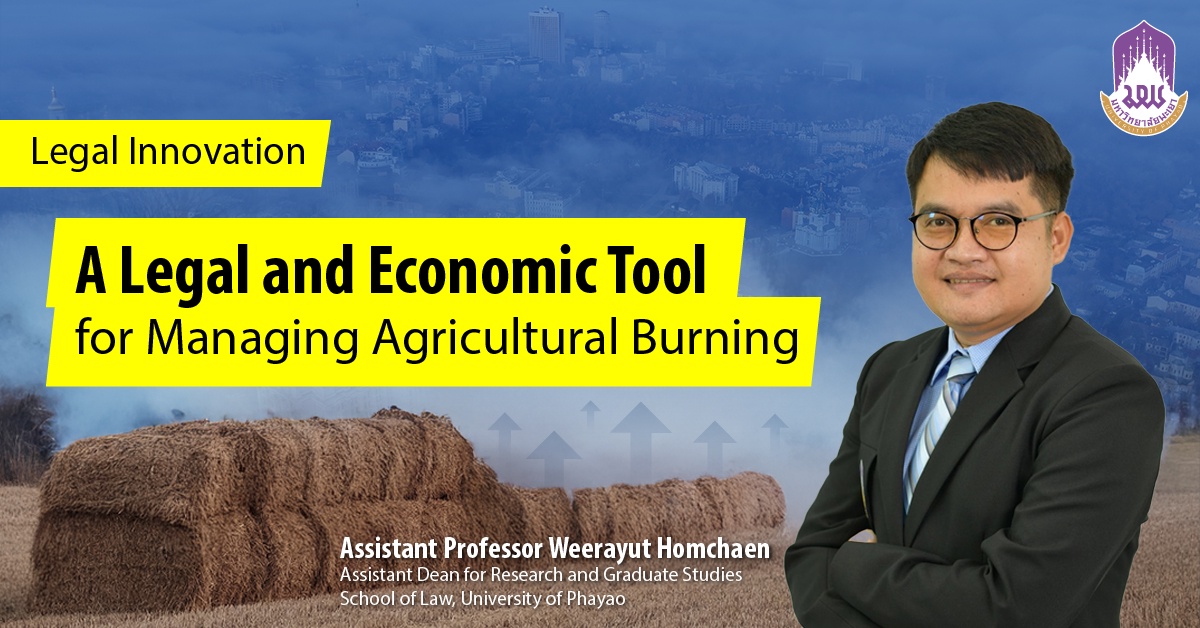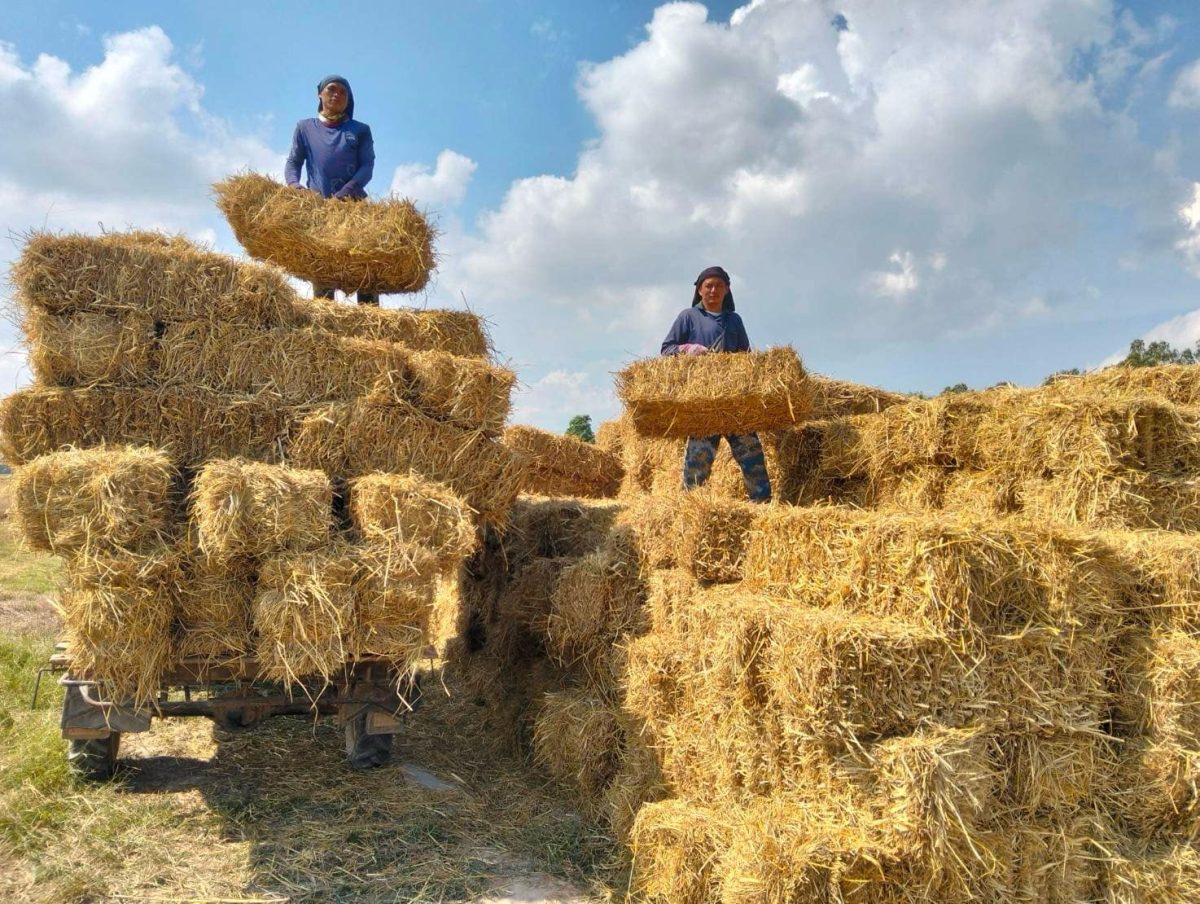a traditional agricultural practice deeply ingrained in their way of life. As a result, after the restricted burning period ends, there is often a buildup of fuel that leads to mass burning events, greatly exacerbating air pollution and public health risks.
The root cause of agricultural burning is that farmers find it difficult to plow fields for the next rice crop due to leftover straw or stubble. Burning becomes the easiest and most cost-effective disposal method. Allowing natural decomposition requires favorable weather conditions, extended periods, and the addition of decomposing microorganisms, all of which increase farmers' costs. Meanwhile, baling straw for sale offers little incentive; the production cost of one straw baling is 15 baht, 13 baht for tractor wages and 2 baht for rice straw collection wages, while the market price is only 17 baht per bale, yielding a marginal profit of 2 baht or 13.3%, excluding the farmer's labor cost. Surveys show that farmers are willing to accept straw baling if they earn a margin of at least 5 baht per bale, equivalent to 33.3%.
This project aimed to combine economic and legal strategies by entering into agreements with participating farmers and offering a subsidy of 3 baht per bale to encourage straw baling. The quota for each farmer was set at a maximum of 500 bales. As a result, 19 farmers agreed to participate, covering a total of 101.19 acres (259 rai) of farmland. Together, they produced 9,500 straw bales, each weighing approximately 13 kilograms, which reduced the potential burning fuel by 123 tons. This initiative also had a positive impact on the farmers' income, with an increase of 10.6%. This was calculated based on the average income from rice farming, which is 7,500 baht per acre, and the sale of straw bales at 20 baht each (including the subsidy). On average, each acre yielded around 40 bales.
Additionally, the project generated agricultural employment and created three cycles of cash flow within the community, amounting to 332,500 baht. This figure includes straw baling wages at 13 baht per bale, rice straw collection wages at 2 baht per bale, and income from selling straw bales at 20 baht each (including the subsidy). Overall, the project not only helped reduce air pollution from agricultural burning but also provided additional income for farmers through the productive use of agricultural waste.
Article by Assistant Professor Weerayut Homchaen, Assistant Dean for Research and Graduate Studies, School of Law, University of Phayao
Source: The University of Phayao

